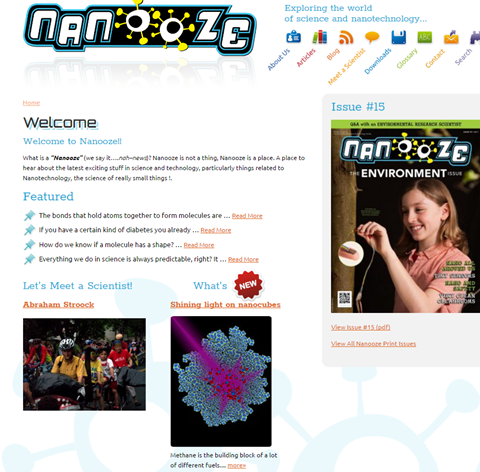Web watch: Josh Howgego investigates a nanotechnology resource site

This month I've been enjoying the website of the National Nanotechnology Infrastructure Network (NNIN). The NNIN is a partnership of 14 institutions across the US and part of their mission is to educate the public about nanotechnology, so there's a good reason for teachers to visit their site. When you arrive at the homepage, click on 'Education and Resources' and you'll see what I mean.
Perhaps the most obvious draw here is the Network's student science magazine, Nanooze (a distortion of 'nano-news'). Nanooze started as a website, which you can still visit at www.nanooze.org. There's much to see here, including Q&As with scientists and explainers on the nanotechnology of medicine and the senses, among other topics. There's also a videogame called Nanocure in which players can strategically place nanoscale medical devices to thwart a maze of incoming viruses. Nanotechnology can sound scary, but there's scope here for introducing students to some of the good it can be used for.
Nanooze is also a print and online magazine, with two or three issues published each year. There's a back catalogue of 12 issues to browse. The NNIN suggests the magazine should be used as enrichment material - and this makes sense. The pictures are attractive and the writing is engaging without being explicitly educational. I can see children enjoying it, but - as with the website - it's probably best for years 7-8 rather than GCSE students. I particularly liked the Nanotechnology in Space issue, which describes how carbon nanotubes could be used to build a space elevator and the chemistry that underpins a new design for a flexible spacesuit.
The site also contains teaching resources and it has done a great job of organising these so it is as easy as possible to slot them into existing modules. Their guide system is designed around the US curriculum, but it's still fairly easy to see how each resource could fit into UK lessons. The resources themselves are top notch, with detailed instructions and assessment for learning built-in. Overall this is a great website to know about. After all, many young would-be chemists will end up working with nanotechnology in one form or another.






No comments yet